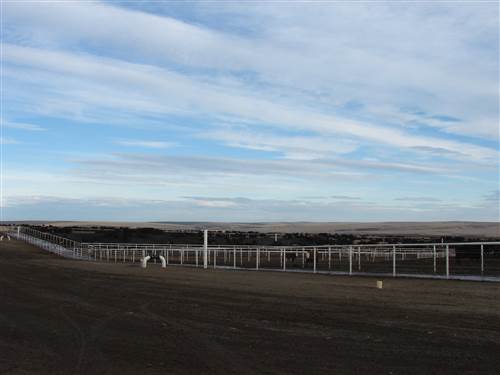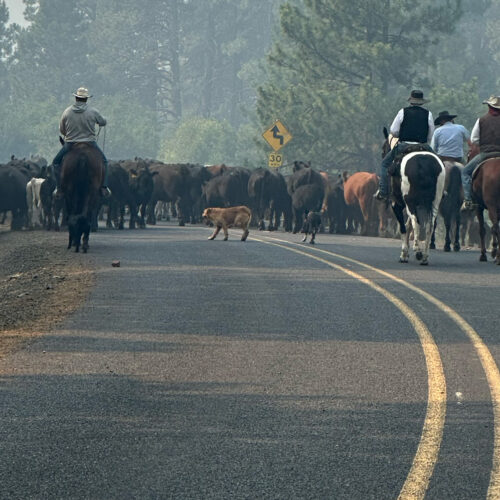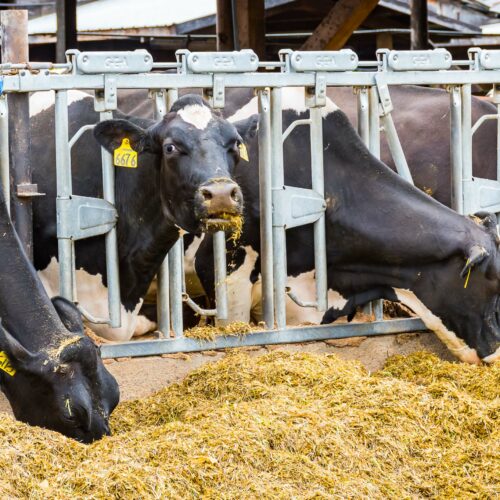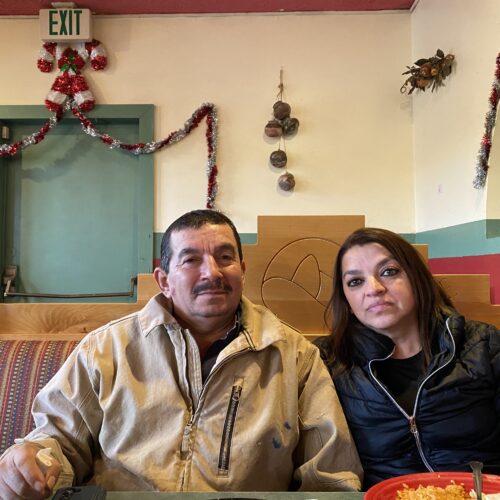
Paper Rustling: Major Washington Cattle Operator Allegedly ‘Fed’ 200K Cattle That Didn’t Exist
READ ON
It’s a modern-day rustling case.
A major Washington state cattle operator allegedly “fed” more than 200,000 head of cattle that didn’t exist for years. Now Tyson Fresh Meats, Inc is suing.
Tyson says in a lawsuit filed in Franklin County Superior Court this week that its losses are more than $225 million. The losses are from false cattle sales and feed costs.
“In an effort to ensure the orderly recovery of assets in the aftermath of a fraudulent scheme by Easterday Ranches, Tyson Fresh Meats is asking for a court-appointed receiver to take control of Easterday Ranches,” Tyson Fresh Meats said in an emailed statement.
The Tyson company is based in Dakota Dunes, South Dakota. It owns six beef packing facilities throughout the nation, including in Lexington and Dakota City, Nebraska; Joslin, Illinois; Holcomb, Kansas; Amarillo, Texas and one outside of Pasco, Washington — the one Easterday Ranches supplied.
Industry experts say missing 200,000 head of cattle for one company is a big deal. For scale, the U.S. kills about 160,000 cattle nationwide daily.
Don Roose is the president and CEO of U.S. Commodities, Inc., a grain and livestock research and risk management firm based in Iowa.
“It’s an unusual situation,” Roose says. “And it’s an unusual situation for big companies particularly because usually they have a very tight watchdog situation. The others that I’ve run into are more like a large private person that finds investors and it’s like a large ponzi scheme.”
Tyson alleges in legal court filings that the cattle feeder was stealing from the company by billing and falsifying records for feed and cattle that were never purchased, beginning around 2016.
Easterday Ranches
Easterday Ranches — and Cody Easterday — are named in the court filings.
“… its President Cody Easterday, has admitted to a scheme in which Defendant [Easterday] has falsified records and submitted fictitious invoices in order to defraud Plaintiff [Tyson] out of more than $225 million. Among other things, Defendant has manufactured documents in order to hide the fact that it was reporting to Plaintiff approximately 200,000 cattle that simply did not exist,” says one of the court filings.
Easterday Ranches is one of the largest agriculture operations in Washington, with 25,000 acres of farmland, a massive dairy operation and thousands of head of cattle used for meat processing. One major cattle-feeding facility is called the “North Lot” located in Franklin County.
How the scheme worked
Feedlots raise cattle until they reach slaughter weight of about 1,400 pounds. The operations usually purchase their young cattle from breeders and cow-calf operators at around 700 pounds. When the cattle are grown, the feedlot delivers cattle to the processing plant.
The alleged Easterday scheme worked like this: The company would buy fake young cattle, then charge Tyson for them. Then Easterday Ranches would fictitiously feed the cattle and bill Tyson for that feed. Next, the cattle operator would deliver some actual cattle — but not all — to Tyson when the on-paper cattle would be market ready.
Tyson discovered the missing cattle in December when the company evaluated its inventory on paper and in a conversation with Cody Easterday. Tyson company officials say when Easterday admitted to the fraud, they came to look at the cattle actually in Pasco.
“We are also working with our outside auditor to implement additional financial controls to help prevent or detect this type of activity in the future,” Tyson Fresh Meats said in an emailed statement.
The reckoning
Now, about 54,000 real cattle are in danger if Easterday Ranches stops feeding or medicating them. Tyson filed a restraining order against Easterday Ranches and is asking for a third party to step in and administer the cattle-feeding business until the lawsuit and financial matters are settled. Tyson has also filed an injunction to prevent the sale of the “North Lot” property in Franklin County.
Tyson is asking for Sean M. Harding, an Atlanta-based food industry expert, to be named “receiver” — the person who temporarily takes over the business.
The court request filed this week includes a request for the current Easterday Ranches staff to turn over everything from keys to financial documents.
Court documents say Cody Easterday has admitted to creating the scheme to make up more than $200 million in losses incurred in the commodities trading markets.
“As his commodities trading losses escalated, Mr. [Cody] Easterday explained that he began submitting fake feeding invoices as well as the fake cattle invoices,” says Jason Wenglarski, vice president of internal governance for Tyson Foods.
According to Tyson, Cody Easterday has secured his business with Tyson using his personal assets and his company’s property. But Tyson says it’s not pursuing his personal property at this time.
If the court decides to dissolve Easterday Ranches’ assets, Tyson will likely have to share any proceeds with other companies that are owed money.
Rare large-scale rustlers
Fraudulent cattle operations do happen occasionally in the U.S. But experts say this alleged case in Franklin County is on a large scale.
“I don’t see how the oversight missed so much. That’s a large number of cattle,” says Don Roose, the livestock industry expert. “Usually on cattle operations, with banks or anybody else, they come out and look at operations, and they try to keep a count. So you know pretty much how many you have out there. Although it’s the same thing, it’s hard to beat a crook if he knows the system to beat you on.”
Another famous case came when a bookkeeper, Kathleen McConnell, and a cattle operator, George Young, created a $160 million cattle scam in Iowa in the early 2000s, that tricked bankers and ranchers.
Family tragedy
The Easterday patriarch and well-known agribusinessman Gale Easterday died in a head-on collision with a semi on Interstate 82 in Pasco last December. He was traveling in the wrong lanes when he hit a semi truck hauling Easterday’s own potatoes. Cody and Cully Easterday are his sons.
The case, Tyson Fresh Meats, Inc. versus Easterday Ranches, Inc., is expected to go before a Franklin County judge in February. No court date has been set.
EDITOR’S NOTE: Cody Easterday and brother Cully Easterday were contacted several times by phone and text message for this story, but did not respond by deadline. This story will be updated with any response.
Related Stories:

Burnt over cattle and lands: In southeast Oregon, grief-stricken ranchers are exhausted and frustrated by wildfires
Moving cattle out of a forest recently outside of Burns, Oregon. (Credit: Sabrina Maki) Listen (Runtime 4:33) Read Exhaustion and frustration: Ranchers in southeast Oregon are battling wildfire. Like many

Migratory birds could cause avian influenza in Northwest dairy cattle
Northwest dairy cattle eat rations out of a feed bunk. (Credit: Washington State Department of Agriculture) Listen (Runtime :58) Read Experts say they are not sure how the highly-pathogenic avian

The cow that stole Christmas: Nearly 20 years since mad cow disease was first discovered in Washington state, one family still struggles
Sergio Madrigal and his wife, Rosa, stand outside the farm they owned, until recently, near Sunnyside, Washington. (Courtesy: Anna King / Northwest News Network) Listen (Runtime 2:56) Read It has















